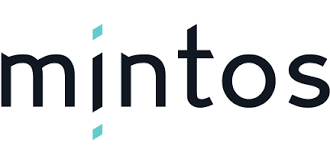As investors, hopefully you are already aware of the multitude of advantages available to you by investing with a peer-to-peer lending platform. An important questions that is not so commonly discussed is, why do borrowers use P2P platforms instead of banks?
Below are the top 4 reasons why borrowers choose a P2P platform rather than a bank for an unsecured loan.
1. Purpose
Whilst every P2P platform is different, collectively they are certainly much less restrictive than the traditional banks when it comes to the purpose of a loan. Whether it’s for real-estate, starting a business or a once in a lifetime vacation trip – P2P platforms cater to all. That being said, most choose to specialize in a specific area.
2. Faster
Imagine – You decide you need to take out a loan, great. Now, you call the bank to make an application and they tell you that you will need to go to their city center branch and meet with an advisor. You take a day off work, travel out of your way to the bank with a thick folder full of paperwork and documents hoping you have everything that you need. Next, you’re subjected to an hour long application full of strenuous and pedantic questions. As the meeting ends, the advisor tells you he’s going to send off all of your documents to their head office for underwriting and you should receive confirmation in the post in 4 – 6 weeks. 6 weeks have passed by and you receive a letter saying unfortunately, we cannot accept you for a loan at this time.
Need we say any more?
Most P2P platforms have an automated online experience where you enter all of your information, upload your documents and receive an instant decision. How? Advanced technology and a service built to exceed customers expectations. This one is a no brainer.
3. Cheaper
Contrary to popular belief, many P2P platforms offer their customers interest rates that are even lower than those offered by the banks. Mainly, this applies to the platforms offering longer durations on their loans – those issuing loans with durations ranging from 1 – 3 months typically charge extremely high interest rates with huge default rates.
Looking at this from a psychological perspective is also worthwhile, since logically you can deduce that the financial awareness and responsibility of a borrower who takes out a €300 loan at 1,000% APR for one month, is most likely not as trustworthy as someone taking out a longer term commitment. Most financially aware borrowers would withdraw their application once seeing a huge rate of interest and reconsider if the short term loan is actually necessary for them.
Bringing all of this together, P2P platforms allow borrowers to see and interact with all of this information up front – such as by using tools offered by the platform to see how their payment will change depending on the duration and amount of their loan, letting them take full control.
4. Unique credit scoring
A win-win advantage for all parties involved is the unique credit scoring models offered by the P2P platforms. Typically, main stream banks use the standard credit referencing agencies as a sole source of information on a borrowers credit-worthiness due to the ease of access and cost efficiency. On the other hand, P2P platforms uses a proprietary credit modelling system that uses traditional data such as the credit referencing agencies, population registries, employment records and also non-traditional data like social media, national identity card data, how they interact with our website and 100’s of more data points.
For the borrowers, this creates a seamless experience that gives them a quick decision for a loan application which is often for a time-sensitive purpose. For investors, this gives them the opportunity to invest in loans with different credit ratings based on their own risk appetite. Most importantly, all of this builds trust and long lasting relationships with both borrowers and investors alike.
Remember, P2P is person-to-person, so your investments are going to real people and boosting the societal value of the sharing economy in finance.
Source: Bondora.com




